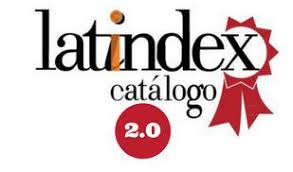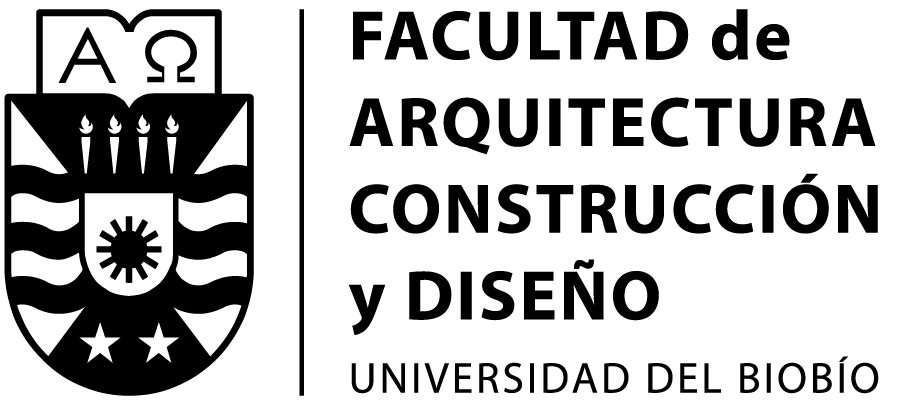Investification in the housing market: exploratory study in Santiago de Chile
DOI:
https://doi.org/10.22320/07183607.2023.26.48.05Keywords:
investification, rental, housing, Santiago de Chile, rentAbstract
This study uses a quantitative methodological approach with geographically weighted regressions to address the phenomenon of investification in the Greater Santiago rental market. Using the collection and analysis of transaction data and urban indicators, the location patterns of residential investments are explored for specific urban functions at the census tract level. The analysis reveals that proximity to higher education institutions, stability in rental prices, and the presence of older adults are determining factors in the selection of investment properties. These findings evidence the transformation of the urban landscape as rental spaces for capital and highlight the growing socio-spatial segmentation, thus underlining the need for regulations that address the implications of investification in the urban dynamics of Greater Santiago.
Downloads
References
AALBERS, M. B. (2019). Financial Geographies of Real Estate and the City Financial Geography Working Paper # 21. 1–46. https://www.fingeo.net/wordpress/wpcontent/uploads/2019/01/FinGeoWP_Aalbers-2019-2.pdf
AGOSTINI, C. A., HOJMAN, D., ROMÁN, A., & VALENZUELA, L. (2016). Segregación residencial de ingresos en el Gran Santiago, 1992-2002: Una estimación robusta. Eure, 42(127), 159–184. https://doi.org/10.4067/S0250-71612016000300007
ALLEN, M. T., RUTHERFORD, R. C., & THOMSON, T. A. (2009). Residential Asking Rents and Time on the Market. The Journal of Real Estate Finance and Economics, 38(4), 351–365. https://ssrn.com/abstract=1303018
APPELBAUM, R. P., & GILDERBLOOM, J. I. (1983). Housing Supply and Regulation: A Study of the Rental Housing Market. The Journal of Applied Behavioral Science, 19(1), 1–18. https://doi.org/10.1177/002188638301900102
BATES, L., KEARNS, R., COLEMAN, T., & WILES, J. (2020). ‘You can’t put your roots down’: Housing pathways, rental tenure and precarity in older age. Housing Studies, 35(8), 1442–1467. https://doi.org/10.1080/02673037.2019.1673323
BLANCO BLANCO, A., FRETES CIBILS, V. & MUÑOZ MIRANDA, A. (2014). Rental Housing Wanted: Policy Options for Latin America and the Caribbean. IBD.
BOGOLASKI, F., LOPEZ, R., & MORA, P. (2021). Crisis de acceso a la vivienda y mecanismos de promoción del arriendo en Chile: Tendencias y desafíos para la consolidación de una Política de Arriendo. Revista de Trabajo Social, 95, 129–138. https://doi.org/10.7764/rts.95.129-137
BRENNER, N., MARCUSE, P., & MAYER, M. (2012). Cities for people, not for profit: Critical Urban Theory and the Right to the City. Routledge.
CORREA-PARRA, J., VERGARA-PERUCICH, J.-F., & AGUIRRE-NÚÑEZ, C. (2020). Towards a walkable city: Principal component analysis for defining subcentralities in the Santiago Metropolitan Area. Land, 9(10), 362. https://doi.org/10.3390/land9100362
CUMMINGS, J., & DIPASQUALE, D. (2002). The spatial implications of housing policy in Chile. City Research. https://citeseerx.ist.psu.edu/document?repid=rep1&type=pdf&doi=16c4f716f976e691c90576e39a99f49dda2d254c
DUCCI, M. E. (1997). Chile: El lado obscuro de una política de vivienda exitosa. Eure-revista Latinoamericana De Estudios Urbano Regionales, 23(69), 99-115. https://www.eure.cl/index.php/eure/article/view/1164
EFTHYMIOU, D., & ANTONIOU, C. (2015). Investigating the impact of recession on transportation cost capitalization: A spatial analysis. Journal of Transport Geography, 42, 1–9. https://doi.org/10.1016/j.jtrangeo.2014.10.009
FUENTES, L., MIRALLES-GUASCH, C., TRUFFELLO, R., DELCLÒS-ALIÓ, X., FLORES, M., & RODRÍGUEZ, S. (2020). Santiago de Chile through the eyes of jane jacobs. Analysis of the conditions for urban vitality in a latin American metropolis. Land, 9(12), 498. https://doi.org/10.3390/land9120498
GIL MCCAWLEY, D. (2012). The Political Economy of Land Use Governance in Santiago, Chile and Its Implications for Class-Based Segregation. Social Science Research Network, 47(1), 119–164. https://doi.org/10.2139/ssrn.2144538
GREENE, R. (2022). Lawner. Ed. Bifurcaciones. https://www.researchgate.net/publication/362927502_Lawner
HARVEY, D. (2012). Rebel cities: From the Right to the City to the Urban Revolution. Verso Books. https://abahlali.org/files/Harvey_Rebel_cities.pdf
HERMIDA, C., MORENO, D., PACHECO, D., TONÓN, L., & CORTÉS, A. (2018). Impacto en el valor de ventas y arriendos de inmuebles con uso residencial y comercial, provocado por la implementación de un sistema tranviario en la ciudad de Cuenca, Ecuador. Revista 180, 42. http://www.revista180.udp.cl/index.php/revista180/article/view/576/403
HERRERA, N., & LOPEZ, E. (2021). Inversionistas de Vivienda en el Gran Santiago: Una Nueva Ola de Negocio Inmobiliario. Scripta Nova – Revista Electrónica de Geografía y Ciencias Sociales, 25(1), 111–140. https://doi.org/10.1344/sn2021.25.32230
HULSE, K., & REYNOLDS, M. (2018). Investification: Financialisation of housing markets and persistence of suburban socio-economic disadvantage. Urban Studies, 55(8), 1655–1671. https://doi.org/10.1177/0042098017734995
IEUT, inciti com +. (2018). Estudio Mercado Arriendo. Instituto de Estudios Urbanos y Territoriales Universidad Católica de Chile. http://www.inciti.cl/PDF/EMA.pdf
Instituto Nacional de Estadísticas. (2018). Entrega completa de resultados definitivos Base de microdatos CENSO 2017. Instituto Nacional de Estadísticas. http://www.censo2017.cl/wp-content/uploads/2018/05/presentacion_de_la_segunda_entrega_de_resultados_censo2017.pdf
KURODA, Y. (2022). What does the disclosure of school quality information bring? The effect through the housing market. Journal of Regional Science, 62(1), 125–149. https://doi.org/10.1111/jors.12557
LIN, J.-J., & CHUNG, J.-C. (2017). Metro-induced gentrification: A 17- year experience in Taipei. Cities, 67, 53–62. https://doi.org/10.1016/j.cities.2017.04.019
LINK, F., MARIN TORO, A., & VALENZUELA, F. (2019). Geografías del arriendo en Santiago de Chile. De la vulnerabilidad residencial a la seguridad de tenencia. Economía, Sociedad y Territorio, 507-542. https://doi.org/10.22136/est20191355
LÓPEZ MORALES, E. J., & OROZCO RAMOS, H. (2019). 605. Ni proletarios ni propietarios: Especuladores. Una radiografía a los agentes de mercado de la gentrificación inmobiliaria en Santiago de Chile. Scripta Nova-revista Electronica De Geografia Y Ciencias Sociales, 23. https://doi.org/10.1344/sn2019.23.21710
MARGARIT SEGURA, D., MORAGA REYES, J., ROESSLER VERGARA, P. I., & ÁLVAREZ GARRIDO, I. (2022). Habitar migrante en el Gran Santiago: Vivienda, redes y hacinamiento. Revista INVI, 37(104), 253–275. https://doi.org/10.5354/0718-8358.2022.63446
MARÍN TORO, A., LINK, F., & VALENZUELA, F. (2017). Arriendo en propiedad: Arraigo y vulnerabilidad residencial en el barrio puerto de Valparaíso. Revista INVI, 32(90), 127–157. https://doi.org/10.4067/s0718-83582017000200127
MAU, S. (2023). Mute Compulsion: A Marxist theory of the economic power of capital. Verso Books. https://www.sdu.dk/-/media/files/forskning/phd/phd_hum/afhandlinger/2019/sren+mau+mute+compulsion+with+front+cover.pdf
Ministerio de Desarrollo Social y Familia. (2021). Encuesta de Caracterización Socioeconómica CASEN en Pandemia 2020. Gobierno de Chile. https://github.com/diegocaro/casen_2020
MORAWETZ, U. B., & KLAIBER, H. A. (2022). Does housing policy impact income sorting near urban amenities? Evidence from Vienna, Austria. The Annals of Regional Science, 69(2), 411–454. https://doi.org/10.1007/s00168-022-01142-w
NAVARRETE, N., & NAVARRETE, P. (2016). Moving ‘away’ from opportunities: Homeownership and labor market. CAF - Documento de trabajo N° 2016/07. https://scioteca.caf.com/handle/123456789/956
NTHITE, C. (2005). Is the rental market a house of cards? Investment property. Personal Finance, 1(297), 1–15. https://hdl.handle.net/10520/EJC77033
OSHAN, T., LI, Z., KANG, W., WOLF, L., & FOTHERINGHAM, A. (2019). MGWR: A Python Implementation of Multiscale Geographically Weighted Regression for Investigating Process Spatial Heterogeneity and Scale. ISPRS International Journal of Geo-Information, 8(6), 269. https://doi.org/10.3390/ijgi8060269
PAKHOMOVA, A., & NOVIKOV, A. (2019). Rental Relations in the Sector of Residential Real Estate: Present-Day Aspect. Bulletin of Baikal State University, 29(3), 499–506. https://doi.org/10.17150/2500-2759.2019.29(3).499-506
POMEROY, S. & M. GODBOUT. (2011). Development of the Rental Housing Market in Latin America and the Caribbean. IDB. https://core.ac.uk/downloadpdf/6675223.pdf
RASSE FIGUEROA, A., CÁCERES QUIERO, G., SARELLA ROBLES, M., SABATINI DOWNEY, F. & TREBILCOCK GAC, M. P. (2021). Segregaciones: habitar la periferia popular en Santiago, Concepción y Talca. Bitacora Urbano Territorial, 31(1), 223–235. https://www.redalyc.org/journal/748/74865119016/74865119016.pdf
RODRÍGUEZ, A., & SUGRANYES, A. (2005). Los con Techo. Un Desafío para la Política de Vivienda Social. Ediciones Sur. https://doi.org/10.4206/aus.2006.n1-07
ROLNIK, R. (2017). La guerra de los lugares. La colonización de tierra y la vivienda en la era de las finanzas. LOM Ediciones. https://ciudades-de-cuidado.org/public/2ebqigk5mbuwqwzemc1kkzy7xrzd/2021_Rolnik_Adelanto-web.pdf
RUIZ, R. (2018). Rental Housing in Bogota, Columbia: Challenges and Opportunities for Creating More Multifamily Properties. Cornell Real Estate Review, 1(16), 73–79. https://ecommons.cornell.edu/handle/1813/70817
SAIZ, A. (2007). Immigration and housing rents in American cities. Journal of Urban Economics, 61(2), 345–371. https://doi.org/10.1016/j.jue.2006.07.004
SANTANA-RIVAS, D. (2020). Geografías regionales y metropolitanas de la financiarización habitacional en Chile (1982-2015): ¿entre el sueño de la vivienda y la pesadilla de la deuda? Eure 46(139), 163-188. https://doi.org/10.4067/S0250-71612020000300163
SHARPE, J. (2019). Re-evaluating the impact of immigration on the U.S. rental housing market. Journal of Urban Economics, 111, 14–34. https://doi.org/10.1016/j.jue.2019.04.001
TECHO. (2023, marzo 14). Aumentan a cerca de 114 mil las familias que viven en campamentos - TECHO Chile. techo.org. https://cl.techo.org/aumentan-acerca-de-114-mil-las-familias-que-viven-en-campamentos/
TORO, F., & OROZCO, H. (2018). Concentración y homogeneidad socioeconómica: representación de la segregación urbana en seis ciudades intermedias de Chile. Revista de Urbanismo, (38), 1–21. https://doi.org/10.5354/0717-5051.2018.48834
UN. (2015). Real Estate markets. United Nations Publications. https://doi.org/10.18356/50ab33b0-en
Universidad Alberto Hurtado. (2017). Encuesta Chile Dice. Universidad Alberto Hurtado.
VARGAS, M. (2016). Tacit collusion in housing markets: The case of Santiago, Chile. Applied Economics, 48(54), 5257–5275. https://doi.org/10.1080/00036846.2016.1176111
VERGARA-PERUCICH, F. (2019). ¿ Qué tan caro es vivir en las capitales regionales? La necesidad de descentralizar las mediciones sobre costo de vida en Chile. Estudios Regionales y Municipales. https://doi.org/10.13140/RG.2.2.14877.77285
VERGARA-PERUCICH, F. (2021). Precios y financierización: Evidencia empírica en mercado de la vivienda del Gran Santiago. Revista INVI, 36(103), 137–166. https://revistainvi.uchile.cl/index.php/INVI/article/view/63812
VERGARA-PERUCICH, F. (2022b). Socio-economic drivers of increasing number of slums in Chile. GeoScape, 16(1), 55–64. https://doi.org/10.2478/geosc-2022-0005
VERGARA-PERUCICH, J.-F., ENCINAS, F., AGUIRRE-NÚÑEZ, C., TRUFFELLO, R., & GUEVARA, F. L. de. (2020). Contribución a la economía política de la vivienda en Chile. RIL Editores.
VERGARA-PERUCICH, F., AGUIRRE-NÚÑEZ, C., ENCINAS, F., HIDALGO-DATTWYLER, R., TRUFFELLO, R., & DE GUEVARA, F. L. (2023). Political economy of housing in Chile. Routledge. https://doi.org/10.4324/9781003348771
VERGARA-PERUCICH, J.-F., & NUÑEZ, C. A. (2019). Inversionistificación en América Latina: Problematización del mercado de arriendo para el caso chileno. Hábitat y Sociedad, 12, 11–28. https://doi.org/10.12795/habitatysociedad.2019.i12.02
VERGARA-PERUCICH, J. F., & AGUIRRE-NÚÑEZ, C. (2020). Housing Prices in Unregulated Markets: Study on Verticalised Dwellings in Santiago de Chile. Buildings, 10(1), 6. https://doi.org/10.3390/buildings10010006
WILKINSON, C., & GREENHALGH, P. (2022). Exploring Student Housing Demand, Supply Side and Planning Policy Responses in a Small University City: Studentification in Durham, UK. Housing Policy Debate, 1–23. https://doi.org/10.1080/10511482.2022.2137379
YALUFF, F. (2016). Los secretos de la inversión inmobiliaria. Editorial Un Nuevo Día.
ZHAN, D., XIE, C., ZHANG, J., & MENG, B. (2023). Investigating the Determinants of Housing Rents in Hangzhou, China: A Spatial Multilevel Model Approach. Applied Spatial Analysis and Policy, 16(4), 1707-1727. https://doi.org/10.1007/s12061-023-09530-1
Downloads
Published
How to Cite
Issue
Section
License
Copyright (c) 2023 José Francisco Vergara-Perucich, Carlos Aguirre-Nuñez, Carlos Marmolejo-Duarte

This work is licensed under a Creative Commons Attribution-ShareAlike 4.0 International License.
The content of articles which are published in each edition of Habitat Sustentable, is the exclusive responsibility of the author(s) and does not necessarily represent the thinking or compromise the opinion of University of the Bio-Bio.
The author(s) conserve their copyright and guarantee to the journal, the right of first publication of their work. This will simultaneously be subject to the Creative Commons Recognition License CC BY-SA, which allows others to share-copy, transform or create new materials from this work for non-commercial purposes, as long as they recognize authorship and the first publication in this journal, and its new creations are under a license with the same terms.![]()























